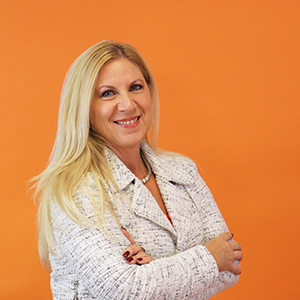 Medicare checkup: Here are answers to three common Medicare questions
Medicare checkup: Here are answers to three common Medicare questions
By Deb Daviau, Vice President of Medicare and Executive Director of NaviCare for Fallon Health
Originally published in Chamber Exchange: The Newspaper, Fall 2021. Republished with permission.
If you’re a baby boomer, chances are you can tell when fall has arrived. Not by the changing colors of the leaves or the cooler temperatures, but rather the amount of advertising targeting people with Medicare.
Medicare beneficiaries—predominantly people ages 65 and over—are in the midst of what’s called Medicare’s Annual Election Period or AEP. Savvy boomers know how important this time of year is to review their plan, see if there have been any changes to premiums or copays and decide if there’s another plan that is better suited to their needs. Changes made during the AEP become effective on January 1 of the following year.
All of the information and options can be a bit overwhelming, even to seasoned Medicare shoppers. I get it. For years, I’ve been helping people, including my own mother, navigate this complex and intimidating process—and have learned a lot along the way. Here are three questions I’m often asked:
1. As a Medicare beneficiary, what should I be doing right now?
This is the time to figure out how your health care needs, and your health may change over the next year.
A few questions I recommend asking yourself are:
- Do you take any prescription drugs that your current plan does not cover?
- Have you recently developed a new illness or disability that requires different coverage?
- Has your financial status changed?
The next step is to remember that you don’t have to go through this process alone. With more than 40 years of experience under our belts, Fallon Health has become a trusted name in Medicare. We’ve been innovating in this space for decades. In fact, Fallon was the first health plan in the country to offer a Medicare Advantage plan.
Our team of local experts is available to help simplify things—where and when it’s most convenient for you. We’re hosting in-person presentations across our service area on various dates throughout October and November. Online presentations are available in English and Spanish, and one-on-one meetings can also be scheduled. You can also give us a call and speak with one of our representatives.
2. What if I’m happy with my plan?
If you’re happy with your plan—hopefully a Fallon plan—that’s great. You won’t have to do a thing. You should automatically roll into your 2022 plan. If you’re not currently our member, we suggest making sure your plan is still offered in your service area.
If you do have any questions, Fallon is here to help. Our experts would be happy to discuss your options with you. Call us toll-free at: 1-888-377-1980, from 8 a.m. to 8 p.m., seven days a week.
3. What if I plan to work past 65? How does that impact Medicare?
According to Pew Research Center and the Social Security Administration, a wave of baby boomers is retiring—10,000 every day. If that does not match your plans, that is okay.
If you have job-based health insurance through your (or your spouse’s) current job, you don’t have to sign up for Medicare while you are still working. You can wait until you stop working or you lose your health insurance, whichever comes first.
If you don’t have health insurance through your employer, or your spouse’s, you should review the options that are available to you. Medicare can be confusing and if you enroll late, you could be responsible for penalties—in the form of late fees. This is the time to get the information you need, from a trusted resource.
Now, more than ever, health—and health care—are top of mind. The bottom line is, you should start early and be informed. With the right help, you can have the confidence you need to make the best decisions possible.
Deb Daviau serves as Vice President of Medicare and Executive Director of NaviCare for Fallon Health. An expert in innovative health care programs that care for those who need it most, Deb advocates for solutions that focus on helping older adults—and support working caregivers—including PACE, SCO and Medicare Advantage.
H9001_220572_C